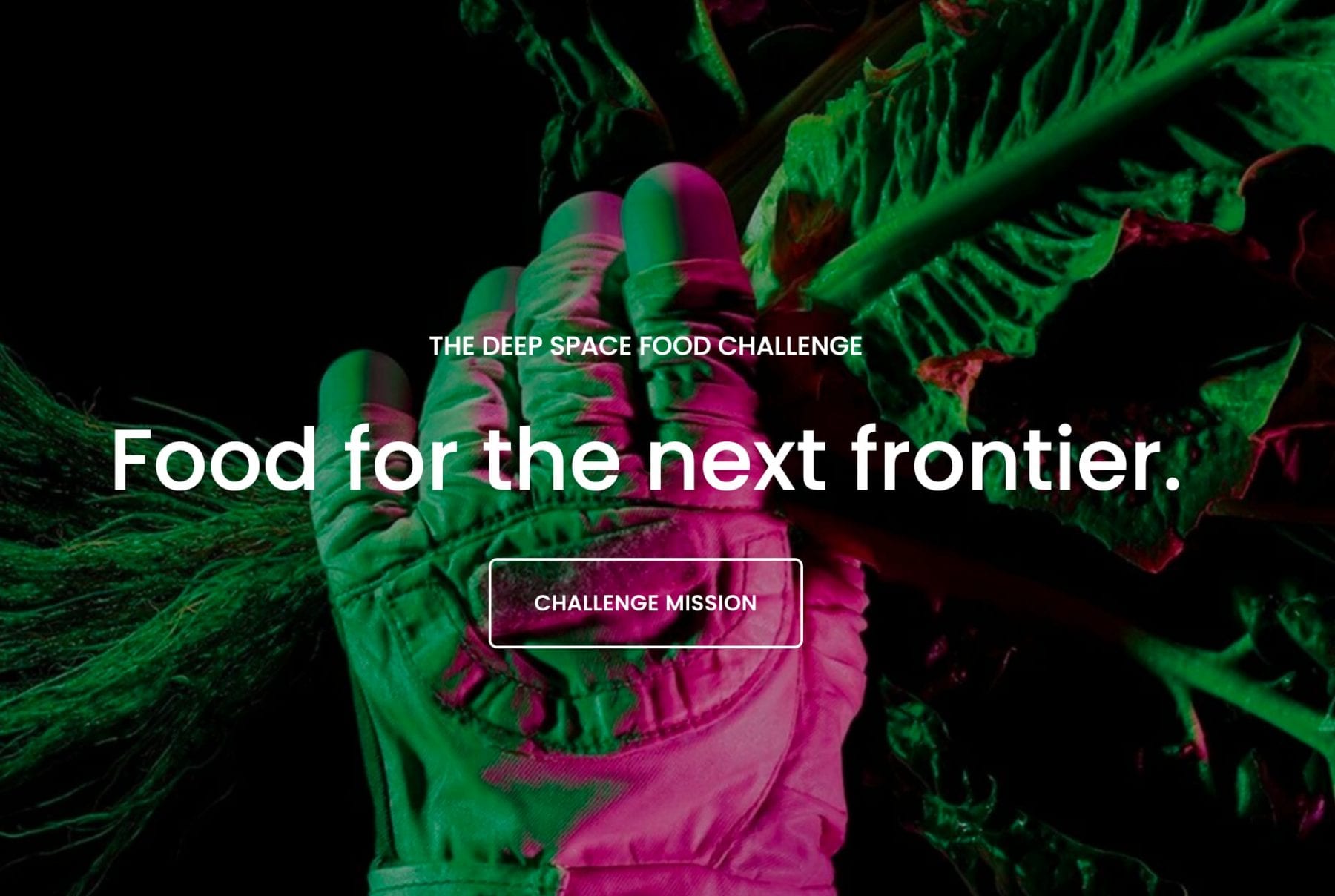
Win $25K through NASA’s Deep Space Food Challenge
February 9, 2021
The Deep Space Food Challenge is an international competition where NASA offers prize purse awards to U.S. teams and recognition to international teams. Teams are invited to create novel and game-changing food technologies or systems that require minimal inputs and maximize safe, nutritious, and palatable food outputs for long-duration space missions, and which have potential to benefit people on Earth.
Up to 20 top scoring Teams will receive $25,000 each and be invited to compete in Phase 2 (should Phase 2 open for competition). Teams must meet eligibility requirements to be eligible to receive a prize from NASA.
Register your team by May 28, 2021.
Design your concept and submit by July 30, 2021.
Winners will be announced in September 2021.
In space
Though there are many food systems on Earth that may offer benefits to space travelers, the ability of these systems to meet spaceflight demands has not yet been established.
Types and durations of future lunar missions constantly evolve and mature based on new technological advances and scientific input.
Space agencies need to address long-duration lunar missions and how to provide future lunar crews with safe, nutritious food while in lunar orbit or on the lunar surface.
On Earth
Food insecurity is a significant chronic problem on Earth in urban, rural and harsh environments and communities.
Disasters can also disrupt supply chains, on which all people depend, and further aggravate food shortages.
Efficient use of volume, water, and other inputs for producing food could enable technologies with reduced impact on the resources needed for food production here on Earth, especially in extreme environments and resource-scarce regions.
Challenge Goals
Our focus is on providing future space explorers and people on Earth nutritious foods they will enjoy.
The Deep Space Food Challenge will identify food production technologies that can:
- Help fill food gaps for a three-year round-trip mission with no resupply
- Feed a crew of four (4) astronauts
- Improve the accessibility of food on Earth, in particular, via production directly in urban centers and in remote and harsh environments
- Achieve the greatest amount of food output with minimal inputs and minimal waste
- Create a variety of palatable, nutritious, and safe foods that requires little processing time for crew members
This challenge seeks to incentivize teams to develop novel technologies and/or systems for food production that need not meet the full nutritional requirements of future crews, but can contribute significantly to and be integrated into a comprehensive food system.




